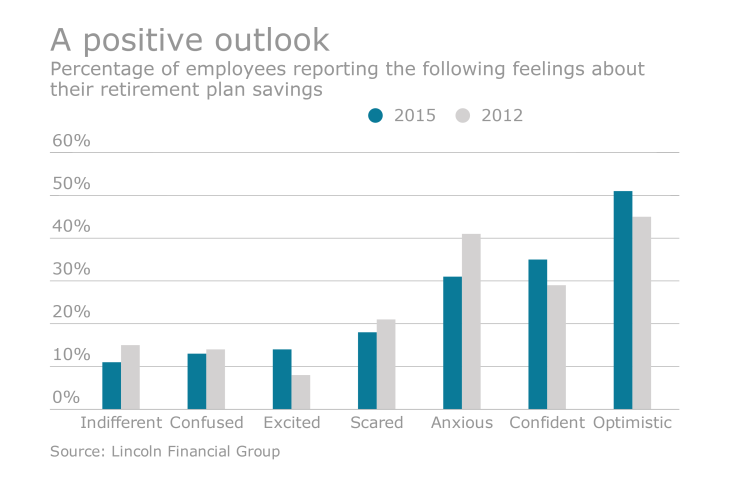The relatively quiet domain of third party administrators is seeing increased consolidation as owners hit retirement age and plan sponsors demand more robust services.
TPAs are the ones who run the day-to-day aspects of a retirement plan. They manage the plan documents, check to make sure the plan is in compliance, process distributions from the plan and calculate a participant’s vested percentage, among other duties.
But as plan sponsors become savvy about the fees they are paying and their own fiduciary responsibilities, they want additional offerings and more choices. Many smaller TPA firms don’t have the resources to compete in the marketplace and still make money, which has fueled a major wave of buy-outs.
“A lot of private equity-backed TPAs and record keepers are gobbling up companies,” says Eric Drobylen, president and CEO of Employee Fiduciary, LLC, a recordkeeping and TPA firm headquartered in Mobile, Ala. Many are doing it because they are paying high multiples for a TPA business at a time when fees are getting compressed.

“I am curious to see where that goes. I’m worried that it could end up driving up fees; sort of reversing that trend of compression because of less competition,” he says. “The irony is it is cheaper to be a recordkeeping TPA. The technology is cheaper than where it was when we started. People bemoan decompression, but the technology is making our expenses lower.”
He adds that fund expenses are decreasing and there is more fee transparency, which has made plan sponsors realize they are not getting a lot of value for their money.
Instead of fee compression, Droblyen calls it fee normalization. People now understand what they are paying and what they are getting for those dollars.
Earlier this year, Ascensus, a TPA firm that supports more than 50,000 retirement plans, acquired Kravitz, Inc., a retirement administration firm and cash balance specialist focused on bringing its clients the latest in the design, administration and management of corporate retirement plans. With this acquisition, Ascensus became the country’s largest provider of cash balance plans.
Also in 2017, Ascensus announced it was acquiring Benefits of Missouri, a company that serves more than 800 plan sponsors in the defined contribution retirement plan market through plan design, administration and consulting services; and Retirement Plan Administrative Service, Ltd., an actuarial, consulting and administrative firm headquartered in Richmond, Va. It acquired three other companies in 2016.
“Obviously there continues to be consolidation within the TPA space as owners desire to retire or move to different roles,” says Neil Smith, executive vice president at Ascensus. “A lot of the growth of TPA work came out of the post-[Employee Retirement Income Security Act] time period of the early ‘70s. A lot of them are approaching retirement or looking for ways to facilitate retirement or just looking to do something different. We do continue to see consolidation in the space as those firms make decisions.”
TPAs are also choosing to work with more record keepers than they have in the past. It used to be a TPA company would partner with two to four record keepers. Now that number is closer to four to six, Smith says.
This move is in response to financial advisers saying they want additional choices. As a corollary issue, TPAs are also relying more on record keepers to help them become more efficient.
“We’re seeing TPAs allowing certain types of activities to process through recordkeeping platforms, like loans and distributions,” Smith says.
By partnering with them, it allows TPAs to concentrate on the consultative aspect of their business and think about new product offerings like cash balance or [ERISA] 3(16) offerings, which are plan administration services, he adds.
“It is oriented toward how do I expand relationships with my existing clients; how do I respond to my distribution partners, who are primarily financial advisers,” he says. “If I do those things well I can expand my top line and bottom line growth in the company.”
By introducing scale into any business model, companies can expand their earnings and expand their future business, Smith says. He points out that the ability to provide choice has added its own level of complexity. Many small TPA firms say there is too much complexity and they don’t want to introduce it or manage it.
“Making sure you are introducing timely and appropriate technical solutions to your client base has two benefits: it improves the client experience and can improve your economics. If you are struggling to keep up with those types of investments, you could feel pressure in falling behind,” Smith says.
Droblyen’s company is organized a bit differently than most TPAs. Only about 50% of its business comes through financial advisers. The other half comes from marketing directly to plan sponsors.
Employee Fiduciary, LLC, is a low-fee provider and many of the company’s plan sponsor clients don’t want to pay an adviser, they want to work directly with their record keeper and TPA firm, Droblyen says.
It is much easier to be in the TPA space now since it has gotten a lot easier to pick a fund lineup than it was 20 years ago, says Droblyen.
“The great equalizer there has been index funds. It is really tough to pick a bad one but it is pretty easy to pick a lousy actively managed fund,” he says. “With active management, returns are all over the board, but with index funds, once you kind of decide you are good with those market returns, life gets a lot easier for you from an investment selection perspective and from a fiduciary perspective.”
Plan sponsors are more sophisticated when it comes to the fees they are paying for their retirement plans. In the past, they never questioned when their plan provider said the plan was free. They didn’t know about fees being paid through revenue sharing or by plan investments that would reduce investment returns, just like direct fees deducted from participant accounts, he says.
His company tries to put a plan’s fees into better perspective by putting them into dollar amounts instead of basis points.
Droblyen says that acting as a fiduciary is a differentiator in the marketplace. His company acts in the best interest of the plans it works with, whereas a client can’t be sure that their broker dealer or insurance agent is doing the same.
And even if there is some question whether the Department of Labor fiduciary rule will ever be fully implemented, he says he doesn’t believe the industry will go back to the way it was before.
“Why would you? I think now, even if [the fiduciary rule] stays in limbo or is fully repealed, the horse has left the barn. People know enough to ask the question, ‘are you a fiduciary?’ If the answer is no, I don’t think I’m supposed to hire you,” he says.





